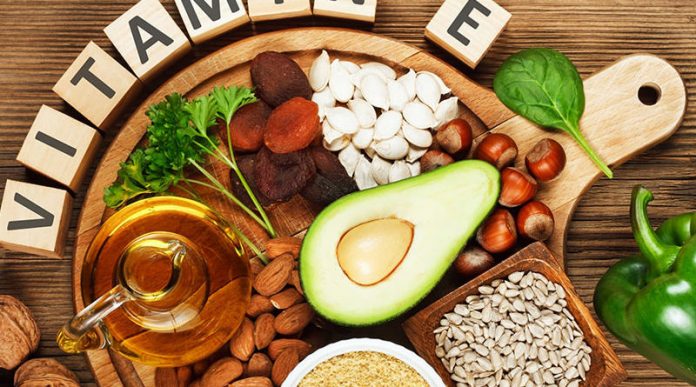We’ve all seen those little paint bubbles on a car which, when peeled away, reveal the nasty blight of rust. When left untreated, the rust spot slowly creeps across the entire metal surface and breaks down the metal until all that’s left is a browny-orange pile of dust. This process of oxidation and accelerated ageing is not limited to cars and bicycles though; it is a natural process of corrosion which occurs within our own bodies. This battle against ageing and cell damage has a saviour, however, in the form of vitamin E.
Essential Vitamin E
Fat soluble and available in many foods, our bodies store vitamin E in our liver for use in many essential bodily functions when needed.
Vitamin E is a formidable antioxidant which means that it acts as a protector within our bodies, warding off free radicals and strengthening our immune system. Free radicals are present almost everywhere in the form of damaging UV rays from the sun, x-rays, smoke, fumes, and other pollutants. These attack the cells and break them down just as rust would to a car. Therefore, we have a constant battle to maintain the integrity of our cells, and vitamin E leads the battle in this area.
The Role of Vitamin E in the Body
The central nervous system (CNS) relies on vitamin E to maintain the essential sheath of fats which surround and protect it. When free radicals attack the CNS the cell life is shortened, and the resultant damage impairs the cell’s ability to perform its function.
It’s for this reason that low vitamin E levels and the resulting oxidation are linked with a variety of degenerative diseases which include dementia, arthritis, cataracts and cancer. One particular study on the benefits of vitamin E concludes with the following comments:
“The antioxidative properties of vitamin E have been found to play a vital role in the battle against various diseases such as atherosclerosis, oxidative stress, cancer, cataract and AD, among others.
This review focussed on the important functions of vitamin E in some diseases; in addition to these, this vitamin has been found to be effective against asthma, allergies and diabetes, among others. Discussion of the dietary sources, RDA and the interaction of vitamin E supplements with other dietary factors, has demonstrated the need for and significance of vitamin E in the human context. Thus, raising public awareness of the role of dietary antioxidants in maintaining better health would benefit a number of lives.”
Am I Low in Vitamin E?
Vitamin E deficiency is rare, given that it is available in several common foods. However, a diet low in fat along with certain genetic predispositions can render one low in this essential vitamin. You will likely experience one or more of the following:
- Weak muscles
- Lack of coordination
- Weak eyesight
- Compromised immune system
- Numb fingers or other extremities
If you suspect that you may be deficient in vitamin E, then we encourage you to talk with your doctor who will be able to determine this with a simple blood test.
How Do I Treat Low Vitamin E Levels?
A good supplement is the fastest and most measurable way to boost flagging vitamin E levels in the body. However, we know that prevention is better than cure, so we want to examine our diets to ensure that we are taking in the necessary foods rich in vitamin E.
Thankfully, our day to day diets will almost always provide enough, and should include:
- Vegetable oils, especially wheat germ oil
- Seeds
- Nuts, especially almonds
- Milk
- Whole grains
- Almost all vegetables including avocado and spinach
- Fish
As medical science advances, it becomes clearer that the basic building blocks of good health, long life and overall wellness starts with a good diet. Often in our stressed environment, we need a little help to give our body’s what they need to flourish, and these come in the way of good quality supplements.















